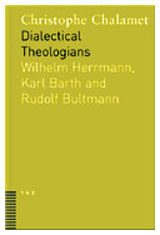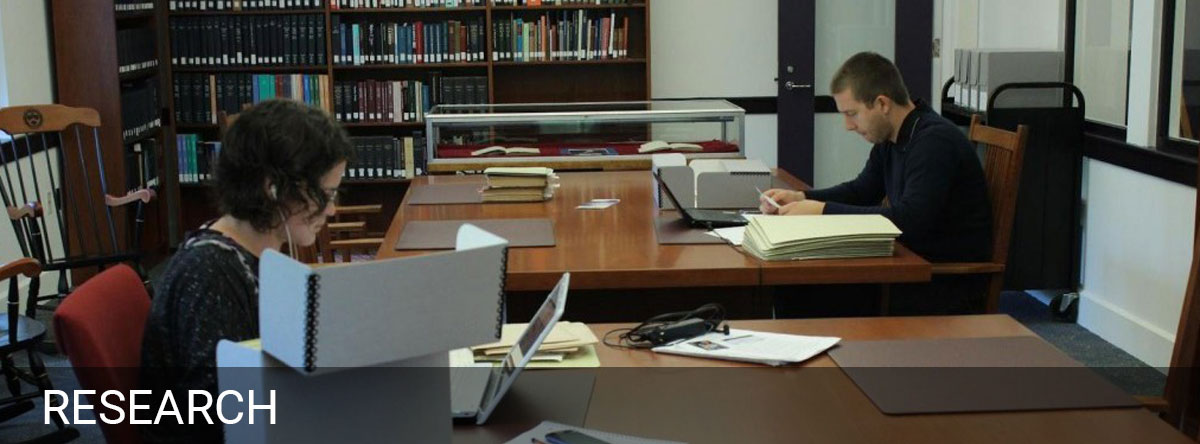 Christophe Chalamet, Dialectical Theologians: Wilhelm Herrmann, Karl Barth and Rudolf Bultmann (Zürich: TVZ, 2005), 327. EUR 37,00
Christophe Chalamet, Dialectical Theologians: Wilhelm Herrmann, Karl Barth and Rudolf Bultmann (Zürich: TVZ, 2005), 327. EUR 37,00
Reviewed by Benjamin Myers (February 16, 2007)
“It is strange to realise that we are so close to each other and yet speak such different languages” – with these words, Karl Barth summed up his relationship to his old friend and nemesis, Rudolf Bultmann.The relationship between Barth and Bultmann is one of the most fascinating and most perplexing subplots in the story of modern theology. From these two thinkers sprung the two dominant schools of twentieth-century theology – and while they had originally viewed themselves as allies in a common cause, Barth and Bultmann came to regard each other with mutual hostility, aversion, and above all bewilderment. Given all this, it’s unfortunate that so few books have explored in detail the relationship between these two remarkable thinkers.
Christophe Chalamet’s groundbreaking new study thus offers a major contribution to our understanding of modern theology. In this work, Chalamet offers the most comprehensive exploration to date of the relationship between Barth and Bultmann. His basic argument is that, in their early years, no one influenced Barth and Bultmann more decisively than their teacher at Marburg, Wilhelm Herrmann. It was here, as students under Herrmann, that they found the basic insights that would later lead to the development of “dialectical theology.” From their earliest days as students, they were both struggling to do the same thing: to fight “against both the left and the right of the theological spectrum” (p. 13), against both “the liberal and orthodox schools” (p. 80).
From Herrmann, these two students learned that God can be spoken of onlydialectically. We cannot speak of God with just one word. Instead, there must be at least two words, two opposing statements: thesis and antithesis, “the dogmatic and the critical, the Yes and the No, the unveiling and the veiling, objectivity and subjectivity” (p. 148). The point of such dialectics is not to find a neutralising synthesis or “middle way” – rather, in the tension between thesis and antithesis, the theologian “leaves a space free in the middle and hopes that God himself will intervene, since only God can say his Word” (p. 148).
Drawing on such a dialectical method, Barth set out to be “more conservative than the conservatives and more liberal than the liberals” (p. 124). When he published his explosive commentary on Romans, very few people had the dialectical frame of mind necessary to understand it – but, as a good Herrmannian, Bultmann was one of the few scholars in Europe who appreciated what Barth was doing. For his part, under the influence of Herrmann, Bultmann was able to clarify his own theological programme as early as 1925 – and he would then “spend the rest of his life trying to unfold the consequences” of his Herrmannian heritage (p. 164).
It was precisely here, however, that the conflict between Barth and Bultmann had its roots. For, as early as 1925, Barth was bidding “a theological farewell to Herrmann” (p. 177). His crucial step was to reverse Herrmann’s dialectic of Law and Gospel – in Barth’s view, the Yes of the Gospel must precede the No of the Law. Bultmann, on the other hand, remained a faithful disciple of Herrmann (and a faithful Lutheran), and his whole theological programme was radically driven by the primacy of Law over Gospel, by a belief that “the No of [God’s] judgement … conceals the Yes of God’s grace” (p. 199).
As Chalamet persuasively argues, an understanding of the dialectical character of Bultmann’s theology allows us better to appreciate some of the most controversial aspects of his work, such as his Sachkritik, his polemic against the Jesus of history, his demythologising, and his existentialist exegesis. Against the common objection that Bultmann made theology the servant of existentialist philosophy, for instance, Chalamet points out that Bultmann always understood the philosophy–theology relationship dialectically. And while Bultmann’s “demythologising” programme has so often been caricatured and misunderstood, Chalamet highlights the fundamental dialectic at the basis of demythologising – a dialectic between scripture and Scripture, between human words and the Word of God.
In any case, as the years went by, Barth and Bultmann were increasingly aware of the great distance between them. By 1937, Bultmann was insisting that he no longer read Barth’s Dogmatics, since “it’s too awful” (p. 262). And, in turn, Barth reacted with horror to Bultmann’s demythologising, and especially to his reliance on the philosophy of Heidegger.
Still, for all their differences, Barth and Bultmann remained “dialectical theologians.” In very different ways, they were both trying to speak about the God who is hidden in his revelation; following Herrmann, their different theological programmes remained oriented around the fundamental dialectic of “the revelation of God in its concealment” (p. 250). Thus both the deep affinity and the irreconcilable differences between Barth and Bultmann were due in great part to their different ways of appropriating and modifying the theology of their early teacher, Wilhelm Herrmann.
Chalamet’s Dialectical Theologians is a first-rate study of the two most important theological thinkers of the twentieth century. It is the most profound and searching analysis to date of the complex relationship between Barth and Bultmann, and it is essential reading for anyone interested in the origins and development of that extraordinary theological movement known as “dialectical theology.”
Note: This review first appeared on Benjamin Myers’ blog, Faith and Theology, and may be accessed here.
The views expressed here are strictly those of the author; they do not necessarily represent the views of the Center for Barth Studies or Princeton Theological Seminary.


